Audio available in app
Good and evil are subjective concepts, influenced by individual perspectives from "summary" of Beyond Good & Evil by Friedrich Nietzsche
The distinction between good and evil is not as clear-cut as many people believe. According to Nietzsche, these concepts are not universal truths but rather subjective interpretations that vary from person to person. What one individual considers good, another may see as evil, and vice versa. This subjectivity is influenced by a person's unique perspective, experiences, beliefs, and values. Nietzsche challenges the idea of an objective moral code that dictates what is inherently good or evil. He argues that such a code is a product of societal norms and cultural conditioning, rather than a fundamental truth. Instead, he encourages individuals to question and critically examine their own beliefs about morality, recognizing that what may be considered good in one context could be seen as evil in another. By acknowledging the subjectivity of good and evil, Nietzsche invites readers to think for themselves and not simply accept societal definitions of morality. He emphasizes the importance of self-reflection and self-awareness in determining one's own values and ethics. This introspective process allows individuals to break free from the constraints of traditional morality and forge their own path based on their unique perspectives. Nietzsche's philosophy challenges readers to consider the complexity of moral judgments and the fluidity of good and evil. He encourages a more nuanced understanding of morality that takes into account the diversity of human experiences and perspectives. By recognizing the subjective nature of good and evil, individuals can embrace a more open-minded and empathetic approach to ethics, free from rigid moral absolutes.Similar Posts
The Critique of Practical Reason defends the autonomy of reason
In the Critique of Practical Reason, the autonomy of reason is a fundamental concept that underpins Kant's moral philosophy. Ka...
Forming unlikely friendships
In the chaos of Bombay, amidst the hustle and bustle of the streets, I found solace in the most unexpected of places - the comp...
Morality requires adherence to rational principles that can be applied universally
In the realm of morality, there must be a foundation upon which our actions are judged. This foundation cannot be based on mere...
Morality guided by reason
In the realm of ethics, reason plays a crucial role in guiding our moral judgments and decisions. According to Kant, morality i...
Apply critical thinking skills to analysis
Critical thinking skills are essential when it comes to analyzing difficult passages from the Bible. This involves more than ju...
Morality defined by struggle for power
The concept of morality being defined by the struggle for power is a central theme in Friedrich Nietzsche's 'The Genealogy of M...

Human relationships are fraught with power dynamics and conflicts
In the intricate web of human relationships, there exists a constant undercurrent of power dynamics and conflicts. These dynami...
Slave revolution distorts morality
The slave revolution in morality begins with a shift in power dynamics. The weak, oppressed individuals who were once at the me...

